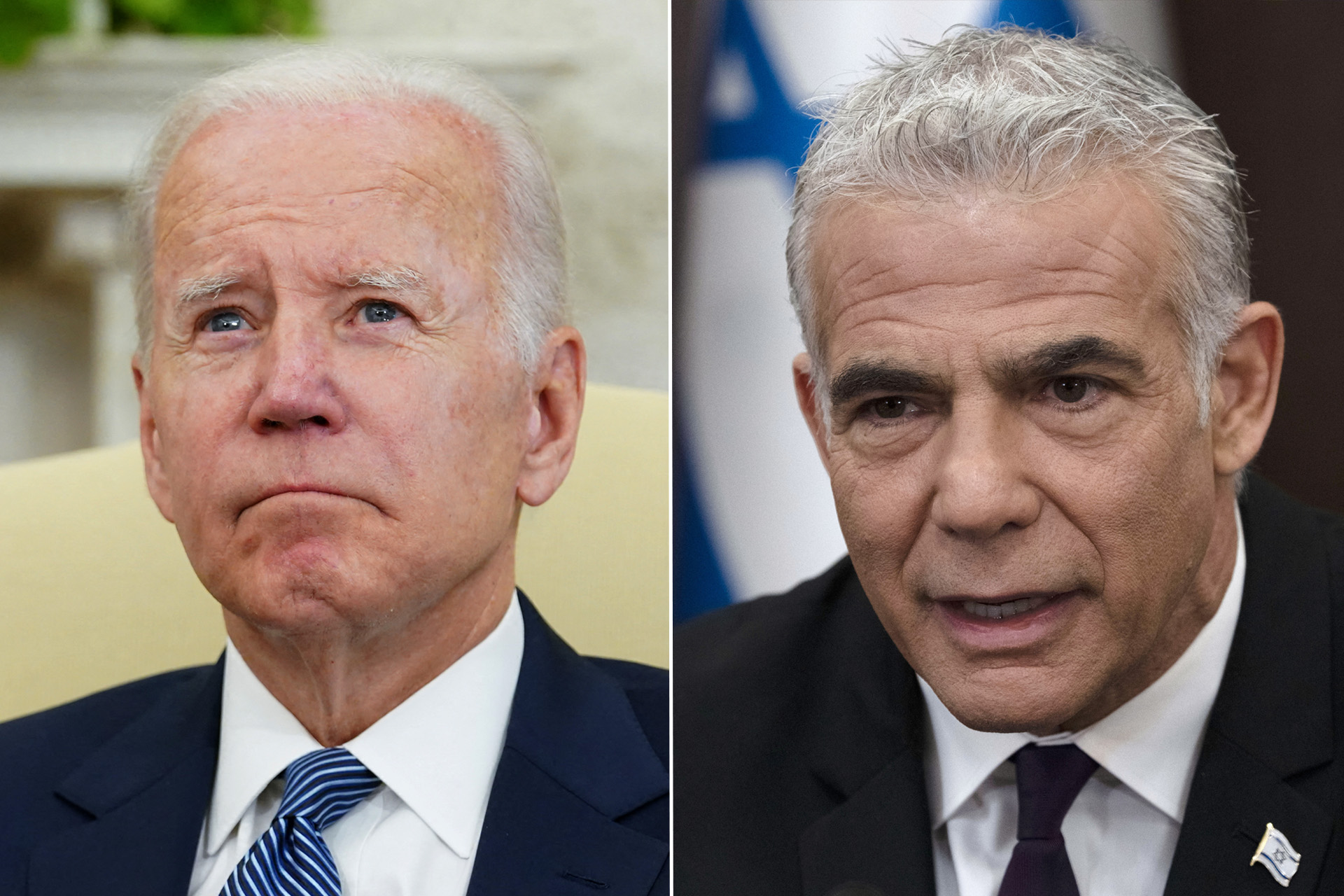An Israeli TV channel said that the government tried to coordinate a phone call between Prime Minister Yair Lapid and US President Joe Biden about the Iranian file, but it did not succeed.
Israeli Channel 13 said when they asked in Israel to hold an urgent conversation with President Biden, the White House replied that the president was on vacation.
She added that although the Americans delayed the conversation, Israeli officials estimate that the conversation between the two will eventually take place, perhaps in the near future.
The Israeli channel also indicated that Israeli Defense Minister Benny Gantz, who left for Washington, on Wednesday evening, will not meet his American counterpart Lloyd Austin, because he is also outside Washington, as Israeli officials were told.
The Israeli channel said that while the nuclear talks with Iran are entering an extreme and final stage, it can be said that Israel is not an important factor in the basket of American considerations.
Even before the talks with Israeli leaders, she added, the United States conveyed its response to Iran's response to the draft nuclear agreement.
And this happened before Gantz arrived in Washington and before the conversation between Prime Minister Lapid and President Biden, and an Israeli political source said, "The gaps between us and the Americans are very large."
In recent days, Israeli National Security Adviser Eyal Holata met in Washington with Assistant Secretary of State Wendy Sherman and National Security Adviser Jake Sullivan, as talks focused on the crystallized agreement with Iran.
The Israeli channel said that Israeli officials went to Washington to minimize the damage.
In recent days, Israeli officials' statements against the agreement have escalated, while stressing that Israel will not be bound by it.
On Wednesday, the US State Department announced that it had ended its review of Iran's observations on the nuclear deal and sent its response to the European Union, without providing any details about what the response would be.
The US response came more than a week after Tehran sent its response to what the European Union's chief diplomat, Josep Borrell, described as the final text to revive the nuclear deal.
Earlier this month, the European Union submitted a final settlement proposal, calling on Tehran and Washington, who are negotiating indirectly, to respond to it, hoping to culminate in talks that began a year and a half ago.
Israel wants the international community to impose sanctions on Iran and to threaten the military option, if Tehran continues its efforts to acquire nuclear weapons.

